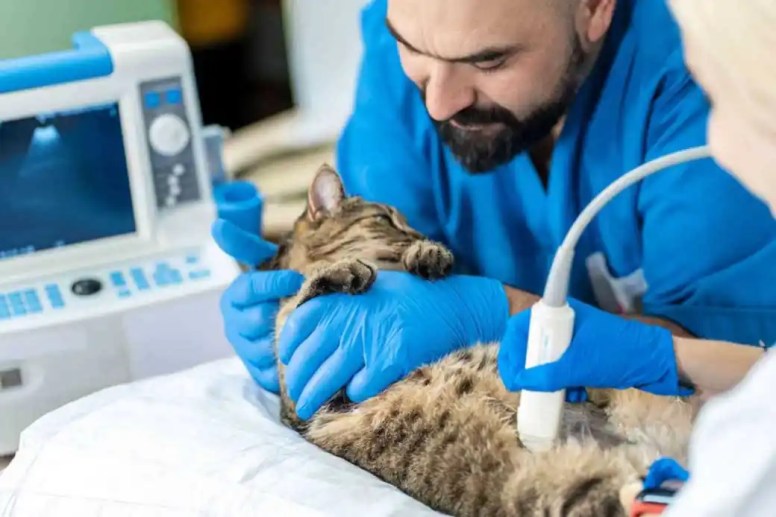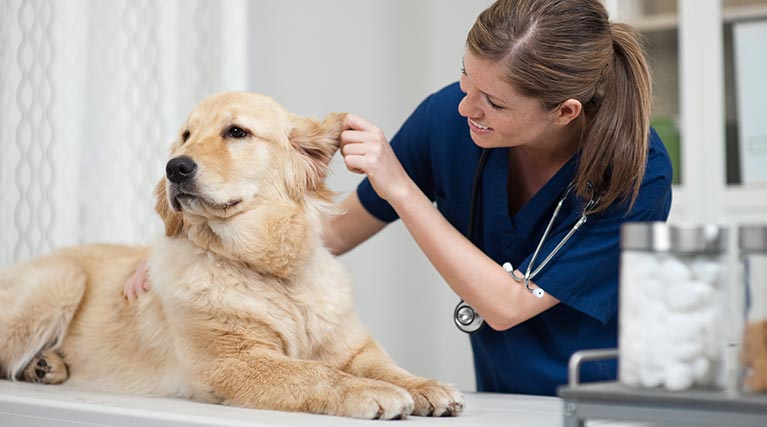When to Seek the Assistance of an Emergency Vet for Sudden Health Worries
When to Seek the Assistance of an Emergency Vet for Sudden Health Worries
Blog Article
Inoculation Standards From Your Trusted Vet
Inoculation standards given by your trusted veterinarian play a crucial role in safeguarding your family pet's health and wellness and well-being. Furthermore, attending to usual misunderstandings surrounding vaccinations can even more improve pet dog owners' self-confidence in these preventative actions.

Relevance of Vaccinations
Vaccinations play a critical duty in protecting pet dogs versus a variety of preventable diseases. By stimulating the immune system to acknowledge and battle certain pathogens, vaccines substantially reduce the incidence of contagious illness that can influence a pet dog's health and wellness and long life. Not only do vaccinations secure private animals, yet they also add to herd immunity, thus decreasing the total frequency of illness in the pet population.
Prompt vaccinations aid to reduce the spread of conditions such as rabies, parvovirus, and distemper, which can have severe consequences for both people and family pets. In addition, inoculations are often a demand for boarding centers, brushing services, and pet parks, making them important for those who desire to mingle their pets.

Core Vaccines for Animals
While the details vaccination needs of pets can differ based upon individual variables, core injections are generally recommended to shield against one of the most significant and typical diseases (Pet Health Checkup). Core injections are those considered important for all pets, despite their lifestyle or geographical place, as they guard against highly infectious and potentially deadly diseases
For pets, the core vaccinations include those for canine distemper, parvovirus, adenovirus (hepatitis), and rabies. Adenovirus can result in liver disease, while rabies is a zoonotic illness that poses a danger to both animals and people.
In felines, core vaccines include feline panleukopenia, feline calicivirus, feline herpesvirus (rhinotracheitis), and rabies. Feline panleukopenia is an extremely transmittable viral condition that influences the body immune system and intestinal tracts. Calicivirus and herpesvirus are major contributors to upper respiratory infections in cats, while rabies remains a critical problem for public health and wellness.
Consult with your veterinarian to ensure your family pets receive their core vaccinations on time.
Non-Core Vaccines Explained
Non-core vaccines are tailored to address specific risks connected with a family pet's setting, direct exposure, and lifestyle to particular diseases. Unlike core vaccines, which are generally suggested for all pet dogs, non-core vaccinations are taken into consideration based on specific situations. These vaccinations are specifically crucial for pets that may come across special microorganisms as a result of their geographical place, traveling behaviors, or activities.
Instances of non-core vaccinations consist of those for Bordetella bronchiseptica, which is linked to kennel coughing, and Lyme illness, caused by ticks. Pets that often connect with various other animals, such as those in boarding centers, dog parks, or brushing environments, might gain from Bordetella vaccination. Likewise, if you live in an area where Lyme illness is prevalent, best site immunizing against this illness can be a prudent option for outdoor-loving pet dogs.
Various other non-core vaccinations may include those for leptospirosis, canine influenza, and feline leukemia, depending upon the certain risk variables present. It is vital to have a comprehensive conversation with your vet concerning your pet's way of life and the possible demand for these vaccines, guaranteeing a customized vaccination method that finest secures your hairy buddy.
Inoculation Arrange Review

As family pets mature, it is essential to comply with the suggested booster vaccinations. Vet Enterprise. For adult pets, core vaccines are typically offered every one to three years, relying on the particular injection and local laws. Non-core vaccines might be advised based upon way of living aspects and regional illness occurrence, demanding a tailored strategy
Routine vet exams are vital for upgrading vaccination schedules. Your vet can supply guidance on one of the most appropriate booster shots for your pet dog, considering age, wellness condition, and environmental risks. By remaining proactive and educated, pet proprietors can ensure their furry companions obtain timely and effective inoculations, consequently securing their wellness and well-being throughout their lives.
Common Myths Regarding Vaccinations
Mistaken beliefs concerning pet dog vaccinations can bring about confusion and hesitation among animal proprietors concerning the booster shot procedure. One prevalent misconception is that vaccinations are unnecessary for interior pet dogs. While it's true that indoor pet dogs face reduced risks, they are not completely immune to illness, as virus can be presented with different methods, consisting of about his human clothes and other family pets.
Another false impression is that injections can trigger the diseases they intend to avoid. In truth, many injections contain suspended or undermined microorganisms, which can not create illness in healthy animals. Some family pet owners likewise think that their animals should not be immunized if they are currently healthy; however, vaccinations are an aggressive action that aids protect against the onset of illness.
Additionally, several pet owners are afraid that vaccines will lead to lasting wellness problems. The advantages of inoculation-- safeguarding family pets from possibly life-threatening diseases-- far outweigh the risks.
Final Thought
In recap, adherence to inoculation guidelines is vital Read Full Report for making sure the health and longevity of pets. Core vaccines supply vital protection against significant conditions, while non-core injections resolve specific dangers based upon individual way of lives. Establishing a detailed inoculation schedule, combined with normal vet exams, promotes optimum health and wellness monitoring. Dispelling typical myths bordering inoculations additionally enhances the value of notified decision-making in pet treatment. Ultimately, a proactive strategy to inoculations is vital for keeping family pet wellness.
Not just do vaccinations secure specific animals, but they likewise add to herd immunity, consequently reducing the total prevalence of conditions in the pet population.
False impressions regarding family pet vaccinations can lead to complication and unwillingness amongst pet proprietors regarding the booster shot procedure. While it's true that indoor pet dogs face lower dangers, they are not entirely immune to conditions, as pathogens can be introduced via different means, including human garments and various other family pets.
Some pet owners also believe that their family pets must not be immunized if they are already healthy; however, vaccinations are a proactive procedure that aids protect against the start of illness.
The advantages of vaccination-- securing family pets from possibly life-threatening conditions-- far outweigh the risks.
Report this page